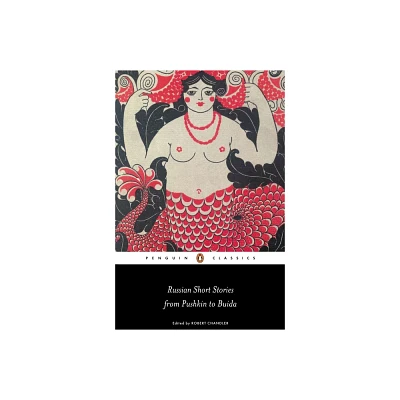Home
Best Russian Short Stories
Loading Inventory...
Barnes and Noble
Best Russian Short Stories
Current price: $33.95


Barnes and Noble
Best Russian Short Stories
Current price: $33.95
Loading Inventory...
Size: Hardcover
*Product Information may vary - to confirm product availability, pricing, and additional information please contact Barnes and Noble
Thomas Seltzer (February 22, 1875, Russia - September 11, 1943, New York City) was a Russian-American translator, editor and book publisher.
Born in Russia, Thomas Seltzer moved to the United States with his family as a young child. He attended the University of Pennsylvania on scholarship and graduated in 1897, going on to do post-graduate work at Columbia University. In addition to speaking his native Russian, Seltzer was conversant in Polish, Italian, German, Yiddish, and French and it was his language skills that led him to a career as a translator. He parleyed his way with words into work as a journalist and editor, writing for newspapers and magazines, notably Harper's Weekly and in 1911-1918, Seltzer worked with Max Eastman, Charles Erskine Scott Wood, and others as editor of the socialist magazine, The Masses.
As an editor, Seltzer gained experience at Funk & Wagnalls and beginning in 1917 the New York publishing firm Boni and Liveright. It was during his tenure with Funk & Wagnalls that Seltzer met his wife Adele Szold and the couple were married October 21, 1906.
In 1919 Seltzer established his own publishing venture, Thomas Seltzer, Inc., and is credited with bringing D. H. Lawrence's works to the American public. His work also brought him into contact with such authors as Henry James and Theodore Dreiser.
As a result of publishing controversial writers, Seltzer was attacked by the New York Society for the Suppression of Vice in 1922 and all copies of D. H.Lawrence's Women in Love, Arthur Schnitzler's Casanova's Homecoming, and the anonymously written A Young Girl's Diary were confiscated. Seltzer refused to back down, retaining a lawyer and fighting the attempted censorship in the court case People v. Seltzer. Although victorious, it was not to be the end of Seltzer's fight against censorship, as he was charged with publishing "unclean" books in 1923; once again, D.H. Lawrence's Women in Love was the impetus for the charges. Fighting censorship charges eventually led Seltzer's publishing efforts into bankruptcy. The business was taken over by Seltzer's nephews Charles and Albert Boni.
Seltzer died in New York on September 11, 1943, three years after Adele's death. He had no children. (wikipedia.org)
Born in Russia, Thomas Seltzer moved to the United States with his family as a young child. He attended the University of Pennsylvania on scholarship and graduated in 1897, going on to do post-graduate work at Columbia University. In addition to speaking his native Russian, Seltzer was conversant in Polish, Italian, German, Yiddish, and French and it was his language skills that led him to a career as a translator. He parleyed his way with words into work as a journalist and editor, writing for newspapers and magazines, notably Harper's Weekly and in 1911-1918, Seltzer worked with Max Eastman, Charles Erskine Scott Wood, and others as editor of the socialist magazine, The Masses.
As an editor, Seltzer gained experience at Funk & Wagnalls and beginning in 1917 the New York publishing firm Boni and Liveright. It was during his tenure with Funk & Wagnalls that Seltzer met his wife Adele Szold and the couple were married October 21, 1906.
In 1919 Seltzer established his own publishing venture, Thomas Seltzer, Inc., and is credited with bringing D. H. Lawrence's works to the American public. His work also brought him into contact with such authors as Henry James and Theodore Dreiser.
As a result of publishing controversial writers, Seltzer was attacked by the New York Society for the Suppression of Vice in 1922 and all copies of D. H.Lawrence's Women in Love, Arthur Schnitzler's Casanova's Homecoming, and the anonymously written A Young Girl's Diary were confiscated. Seltzer refused to back down, retaining a lawyer and fighting the attempted censorship in the court case People v. Seltzer. Although victorious, it was not to be the end of Seltzer's fight against censorship, as he was charged with publishing "unclean" books in 1923; once again, D.H. Lawrence's Women in Love was the impetus for the charges. Fighting censorship charges eventually led Seltzer's publishing efforts into bankruptcy. The business was taken over by Seltzer's nephews Charles and Albert Boni.
Seltzer died in New York on September 11, 1943, three years after Adele's death. He had no children. (wikipedia.org)


















